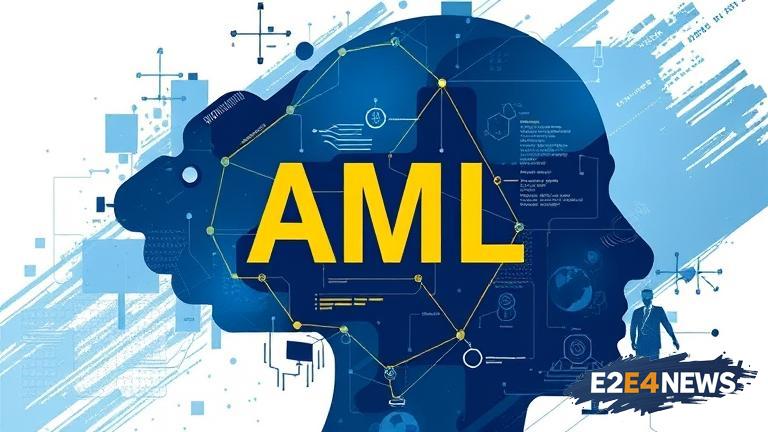The financial services industry is on the cusp of a significant transformation, driven by the increasing adoption of artificial intelligence (AI) and machine learning (ML) technologies. One area where AI is making a significant impact is in Anti-Money Laundering (AML) compliance, particularly for Registered Investment Advisers (RIAs). With the Financial Crimes Enforcement Network (FinCEN) set to introduce new rules, RIAs must ensure they have robust AML compliance systems in place. AI-powered AML compliance solutions can help RIAs achieve lean operations, reduce costs, and improve efficiency. These solutions use advanced algorithms and ML models to analyze large datasets, identify patterns, and detect suspicious activity. By leveraging AI, RIAs can automate many of the manual tasks associated with AML compliance, such as customer due diligence, transaction monitoring, and reporting. This not only reduces the risk of human error but also enables RIAs to focus on higher-value tasks. Furthermore, AI-powered AML compliance solutions can help RIAs stay ahead of emerging threats, such as cryptocurrency-based money laundering and other forms of illicit activity. The use of AI in AML compliance also enables RIAs to better manage their risk exposure, improve their overall compliance posture, and reduce the likelihood of regulatory fines and penalties. In addition, AI-powered AML compliance solutions can provide RIAs with real-time insights and analytics, enabling them to make more informed decisions and respond quickly to changing market conditions. The benefits of AI-powered AML compliance solutions are numerous, and RIAs that adopt these solutions can expect to see significant improvements in their operations, risk management, and compliance outcomes. As the financial services industry continues to evolve, it is likely that AI-powered AML compliance solutions will become an essential tool for RIAs seeking to stay ahead of the curve. With FinCEN’s upcoming rule set to introduce new requirements for AML compliance, RIAs must be proactive in adopting AI-powered solutions that can help them achieve lean operations and reduce their risk exposure. By doing so, RIAs can ensure they are well-positioned to meet the challenges of the future and maintain their competitive edge in the market. The adoption of AI-powered AML compliance solutions is not without its challenges, however. RIAs must carefully evaluate the different solutions available, considering factors such as cost, scalability, and integration with existing systems. They must also ensure that their AI-powered AML compliance solutions are transparent, explainable, and aligned with regulatory requirements. Nevertheless, the benefits of AI-powered AML compliance solutions far outweigh the challenges, and RIAs that adopt these solutions can expect to see significant improvements in their operations, risk management, and compliance outcomes. In conclusion, AI-powered AML compliance solutions are revolutionizing the way RIAs approach AML compliance, enabling them to achieve lean operations, reduce costs, and improve efficiency. As the financial services industry continues to evolve, it is likely that AI-powered AML compliance solutions will become an essential tool for RIAs seeking to stay ahead of the curve. With their ability to automate manual tasks, detect suspicious activity, and provide real-time insights and analytics, AI-powered AML compliance solutions are poised to play a critical role in the future of AML compliance. RIAs that adopt these solutions can expect to see significant improvements in their operations, risk management, and compliance outcomes, and will be well-positioned to meet the challenges of the future. The use of AI in AML compliance is a significant development, and one that is likely to have far-reaching implications for the financial services industry. As such, RIAs must be proactive in adopting AI-powered AML compliance solutions, and must carefully evaluate the different solutions available to ensure they are well-positioned to meet the challenges of the future.
